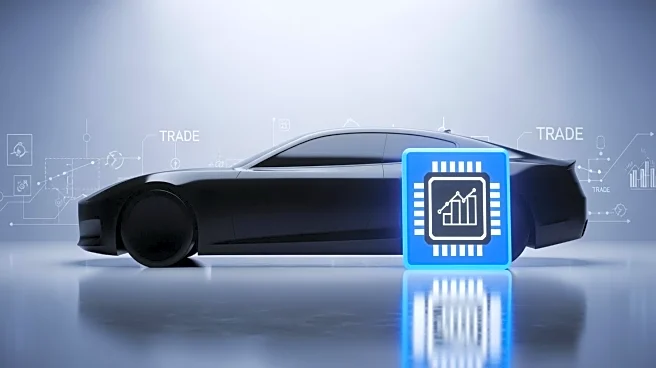What's Happening?
Volkswagen has announced a $1.5 billion loss in the third quarter, attributing the financial setback to tariffs imposed by President Trump. The tariffs, which have increased from 2.5% to 15%, are part of the ongoing trade dispute between the United States
and China. Volkswagen, along with other German automakers, relies heavily on microchips produced by Nexperia, a Dutch company caught in the trade standoff. The chip shortage has affected essential vehicle systems, including windshield wipers and warning lights. Despite these challenges, Volkswagen remains optimistic about meeting its financial targets for the year, contingent on securing necessary semiconductors.
Why It's Important?
The financial loss reported by Volkswagen underscores the broader impact of the U.S.-China trade dispute on global industries. The increased tariffs have not only affected Volkswagen but also pose a threat to Germany's automotive sector, a key component of its economy. The chip shortage further complicates production, potentially leading to delays and increased costs. This situation highlights the interconnectedness of global supply chains and the vulnerability of industries to geopolitical tensions. The ongoing trade issues could lead to further economic instability, affecting jobs and revenue in Germany and beyond.
What's Next?
Resolving the trade dispute is crucial for Volkswagen and other automakers to avoid further financial losses. The company must navigate the complexities of international trade negotiations to secure a stable supply of microchips. Additionally, the broader automotive industry may need to explore alternative suppliers or adjust production strategies to mitigate the impact of tariffs and shortages. Stakeholders, including political leaders and industry representatives, are likely to engage in discussions to find a resolution that minimizes economic disruption.

















